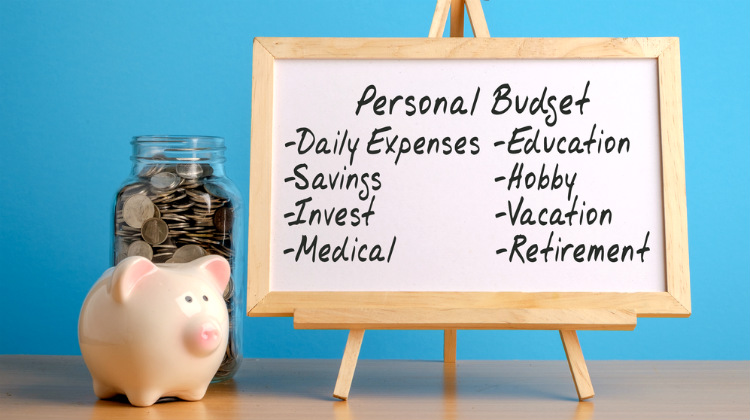It’s that time of the month again.
The time where your salary comes in and goes with the wind. But you know what’s worse than being broke? Figuring out that you spent all the money yourself.
I can’t count how many times I’ve picked up a calculator, adding and deducting expenses only to arrive at the same conclusion, I spent this money myself.
So while we’re dealing with inflation and worrying about when the next check would come in, how do we manage what we’ve got? Here’s how to make sure you spend each Naira efficiently with a personal budget.
First off, what’s a budget? Everyone probably knows what a budget is, but you don’t; think of it as a written financial tool that tracks your spending saving habits over some time.
If you are an employee, the best budget for you is a monthly one that allows you to plan based on your expected income.
HOW TO PLAN YOUR PERSONAL BUDGET
You necessarily do not need an accountant to plan your personal budget. All you need is a great template, and Google sheets make for a perfect one; not only is it online, it works on all internet-enabled devices, which means you can have your budget on you at all times.
For anyone who prefers the typical pen to paper recording, you should have a separate journal for this.
Start by gathering your financial paperwork
You’ll need all you can, including your bank statements, investment accounts, bills, pay stubs and any receipts you can get from the last three months.
This information would help you create a monthly average of your expenses.
Next, calculate your income
Here’s the not-so tricky part. For regular paychecks with automatic tax deductions, you’ll have to use the net income after tax has been deducted. But for other sources of income, you can just record the total as your monthly income.
Create your list of monthly expenses
This is where all the financial information you have gathered becomes useful. Create a list of all your spending. Include everything; personal care, eating out, shopping, anything you would possibly spend money on goes on the list.
Here’s the important part determining fixed and variable expenses
Fixed expenses are mandatory, and the fees never change, it includes rent payments, internet fees, and monthly payments you need to make fall into this list.
Variable expenses, on the other hand have no fixed price and may vary, so groceries, shopping, gifts, petrol, anything you might spend money on goes here. Remember to also include a separate category for miscellaneous expenses that might pop up.
Next, start imputing costs in each category, starting with fixed expenses before moving to variable ones.
To correctly determine your variable expenses, make a rough estimate by reviewing the last 2-3 months of bank transactions.
Now cross this across your regular income
If your income is higher than your expenses, then you’re fine. Just adopt the “50-30-20” budget plan. 50% representing your essential expenses (needs), 30% for your wants and 20% savings.
But if your expenses are more, you are definitely overspending, and you need to make some cuts.
Making adjustments
Once you’ve determined your expenses to be higher, start finding parts of your variable expenses to cut reduce your spending on outings and beauty regimens.
The goal should be finding equality, accounting for where everything goes. Your personal budget will help you track and monitor how much comes into and leaves your account. Not only does it stop you from overspending, but it also helps you identify wrong spending patterns.



